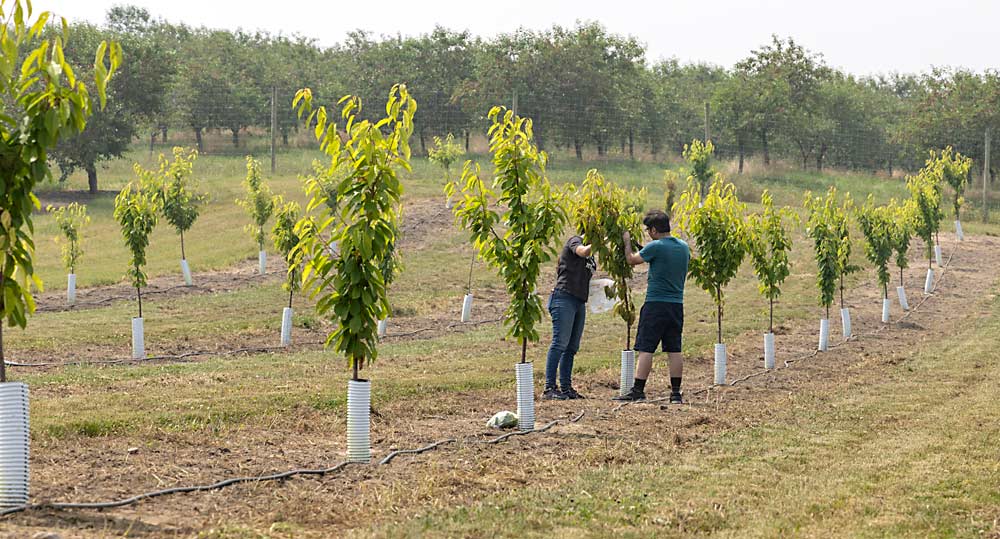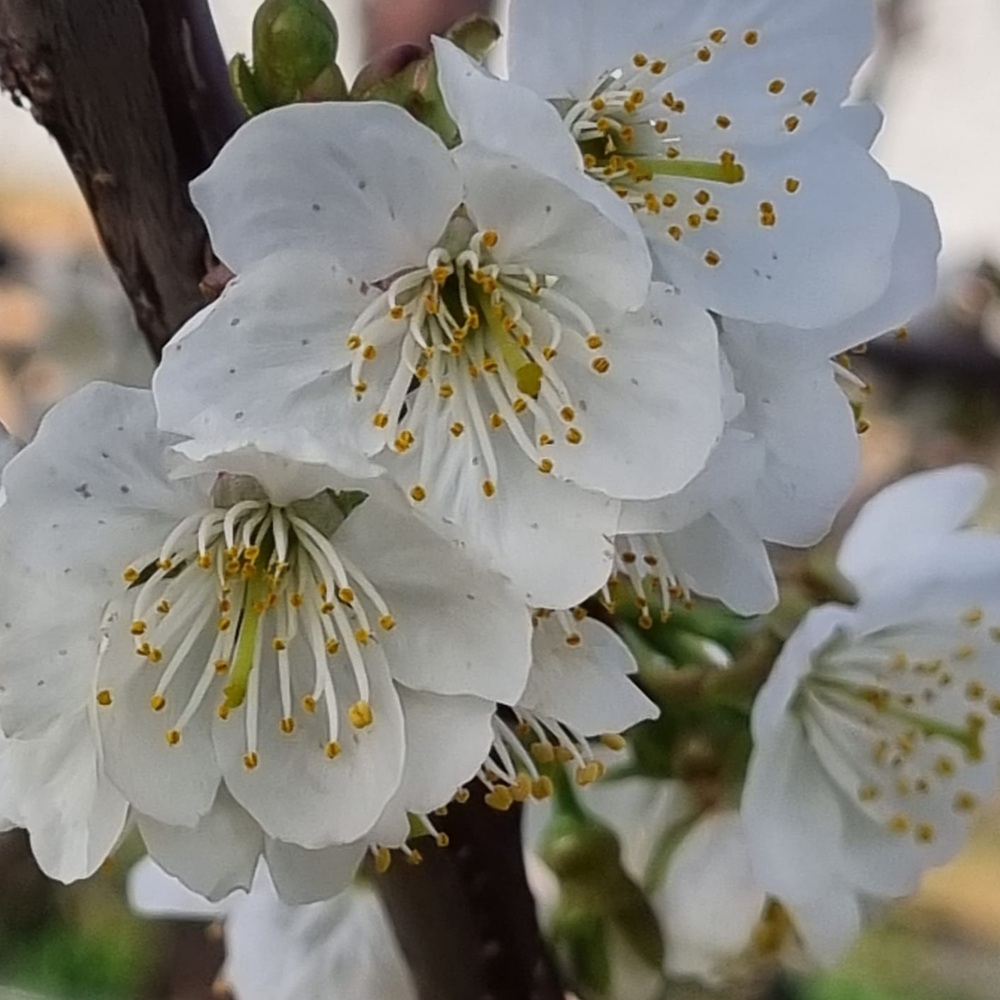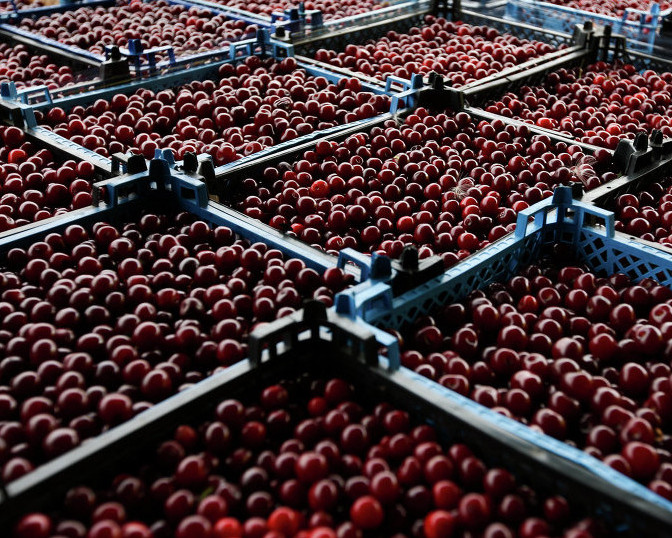In Michigan, some growers wish to increase the production of sweet cherries for the processed market. However, they face replanting disorder when replacing old trees with new ones, as the old trees may have attracted pathogens and soil-borne diseases over time. This disorder involves plant-parasitic nematodes that are vectors of viruses. Growers usually leave the field fallow or fumigate the soil, but waiting can be expensive and nematodes tend to return after fumigation.
A team from Michigan State University is studying non-fumigating strategies to manage the replanting of sweet cherries. They set up a test orchard funded by the Michigan Department of Agriculture. They test five different treatments, including compost and fungicides, to reduce replanting problems. The trial involves Emperor Francis and Ulster cherries on Mahaleb rootstock, planted in May 2022, with the aim of providing solid recommendations to growers.
The results of the first year show that fumigation increased tree growth, but the combined use of compost and straw effectively prevented the reproduction of parasitic nematodes and favoured beneficial nematodes. This study aims to offer sustainable alternatives to fumigation to deal with replanting disorder, with a focus on other stone fruit plants as well.
 Yaghoubi Akbar e sua moglie, Razieh Yazdani, researchers from MSU.
Yaghoubi Akbar e sua moglie, Razieh Yazdani, researchers from MSU.
Read the full article: Good Fruit Grower
Image: Good Fruit Grower
Cherry Times - All rights reserved












